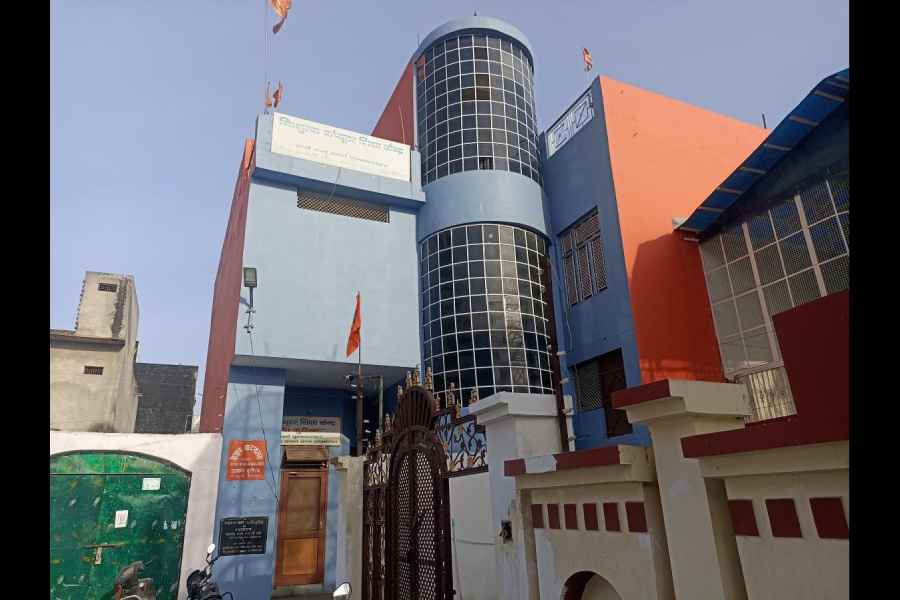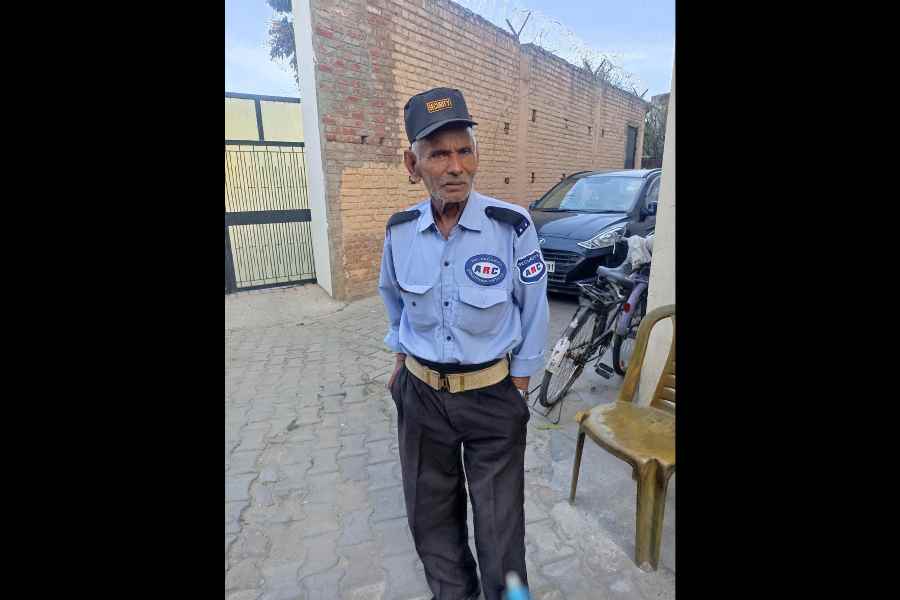Prime Minister Narendra Modi hasn’t quite lived up to all his promises, including acche din, 2 crore jobs and Rs 15 lakh in every Indian’s bank account, over the last 10 years. This is what Ranbir Chaudhary, 72, a Jat farmer of Bulandshahr district in the Meerut region, has to say.
But, “So what,” he adds, with a sparkle in his eyes and a smile on his face. “Only God can fulfil all his promises.”
“The biggest achievement of Modi is that Hindus are safe in this country. Till Modi is the Prime Minister, our children are safe, Hindus are safe,” he says.
Nearby, a BJP cavalcade rolled across the street, some supporters in open-top vehicles and motorcycles chanting “Bharat Mata ki jai” and “BJP zindabad” and went into the lane that leads to the two-storey swanky RSS office in the heart of Bulandshahr town.
The Bulandshahr parliamentary constituency is considered a BJP bastion. The party has won the seat, reserved for Scheduled Castes, since 1991 and lost only once, in 2009 — to the Samajwadi Party. The BJP has repeated its sitting MP, Bhola Singh; the INDIA bloc (Congress) has nominated Shivram Valmiki while the BSP has fielded Girish Chandra Jatav.

The RSS office in the heart of Bulandshahr town. Picture by Imran Ahmed Siddiqui
Standing outside a jewellery shop where he works, security guard Chaudhary says the poor were badly hit by the soaring prices of essential commodities. “Naukri bhi nahin hai (there are no jobs as well),” he complains.
The septuagenarian, who owns two bighas of land, works 10 hours a day without any holiday and gets a salary of Rs 7,000 a month. He says he started working as a security guard five years ago owing to the financial crisis. His elder son farms while the younger one is a driver.
“I have been a farmer all my life but farming has become very unprofitable now. I was forced to take up this job at this age so I don’t have to depend on my sons. They are somehow taking care of their families with whatever little they earn,” he says.
Chaudhary says he had spent a month at the Singhu Delhi-Haryana border during the year-long farmers’ protest against the Modi government to protest against the now-repealed farm laws.
“No government to date has ever done anything for the poor and underprivileged. Modi is also not an exception but he has provided kavach (shield) to Hindus. Muslims are just waiting to invade areas where Hindus are less in numbers the moment Modi loses an election,” he says.
As if to substantiate his claim, Chaudhary takes out his Samsung smartphone, opens his WhatsApp message box and shows this reporter a message he got from “Bharatiya Hindu Sena group”. The main content of the long message in Hindi reads, “Muslim population has crossed 40 per cent in India. They will soon outnumber Hindus and if Modi loses the election they will soon turn India into Pakistan.”
On being told that as per the government’s official data, Muslims account for 20 per cent of the total population, Chaudhary says the reality on the ground was totally different. “I have got similar messages on WhatsApp from other groups,” he retorts.
Ashok Jha, a retired UP government official, says it’s sad that the political discourse in the country had gone down so much. “The ruling party is to be blamed for this. This election is not being fought on the burning issues impacting ordinary citizens, like price rise and unemployment, but along religious lines,” he rues.
Originally from Bihar, Jha’s father, who was in the army, settled in Bulandshahr after retirement in the 1980s.
He says the right-wing Hindutva echo system had been sending inflammatory, false and bigoted messages on WhatsApp to further divide people along religious lines.
“Muslim and Hindus have lived in amity for years in this country. Before every election, the ruling party and its echo system churn out hateful content, misinformation and propaganda to target a particular community both online and offline. This has become a pattern over the past 10 years,” says Jha.
The RSS office was abuzz with activity. Several BJP leaders were seen holding meetings with RSS functionaries in a large room adorned with a portrait of former Sangh chief MS Golwalkar. The office has several small rooms with beds, air-coolers and toilets. In the big hall, saffron flags and other campaign merchandise lay in a corner.
“We have our foot soldiers and volunteers in every village in Bulandshahr and they have been camping there for the last two months, going door-to-door,” says an RSS functionary. “The message has been sent among voters across the constituency that Hindus are safe here only because of Modi.”
Muslims in Bulandshahr town, mostly daily wage labourers, vegetable and fruit sellers and small-time traders, say the elections would be as polarised as in 2014 and 2019. They accuse the RSS-Bajrang Dal of having divided the populace along religious lines to remain in power.
“The divide is very deep here,” says Salim Ahmed, who owns a laptop and mobile phone store. “The Hindutva forces have flown several conspiracy theories against Muslims, including demography-based rhetoric, to target the community. They have generated an atmosphere of fear-mongering, flooding WhatsApp groups and social media with many baseless anti-Muslim claims, with the only motive to enjoy the fruits of power.”
Bulandshahr votes on April 26











